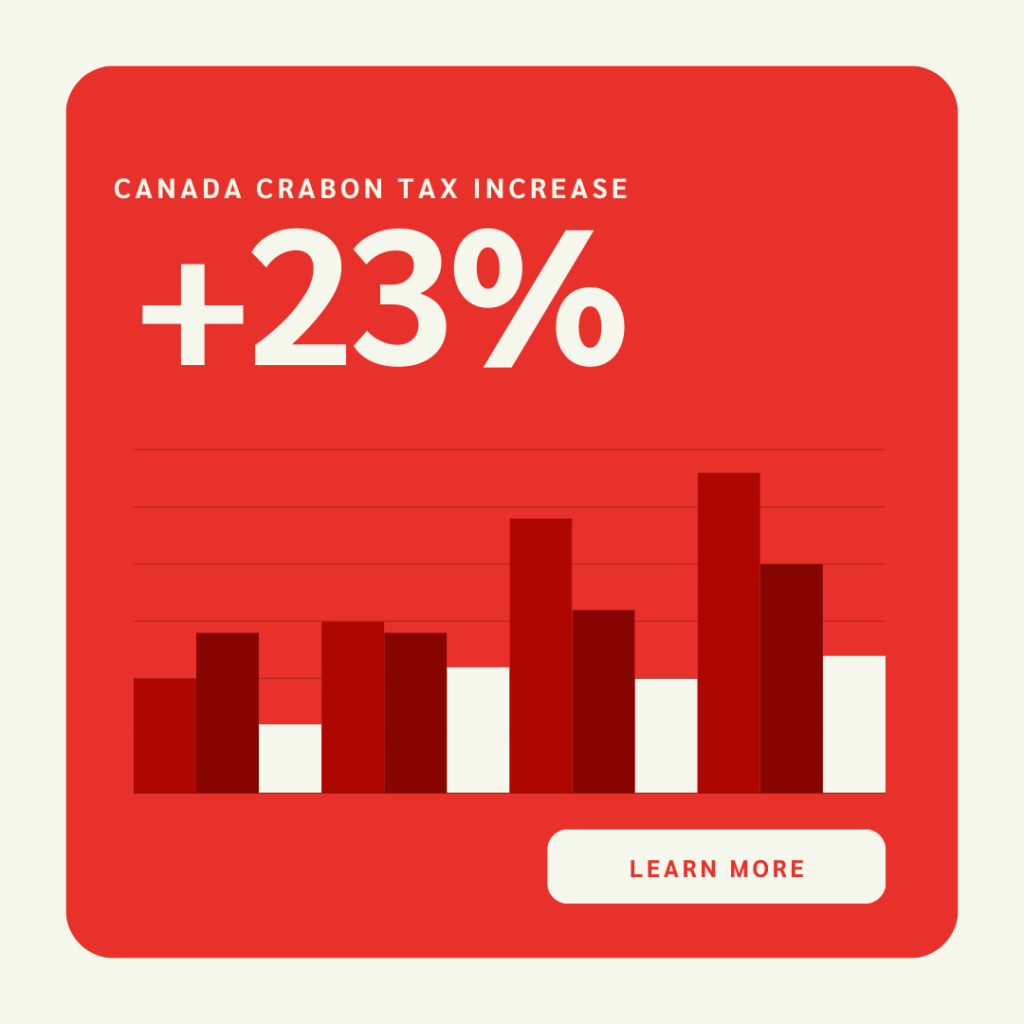
A Comprehensive Guide to the Carbon Tax Increase and What It Means for Canadians
Motorists in Ontario are set to encounter a significant hike in fuel prices this month, attributing to the recent uptick in the carbon tax. This adjustment is part of a broader strategy to combat carbon pollution across Canada, spotlighting the ongoing efforts to minimize greenhouse gas emissions.
As the calendar flipped to April, the tax on carbon emissions saw a $15 per tonne increase, catapulting the levy for gasoline to an additional 17.6 cents per litre—marking a 3.3 cent rise per litre.
This escalation means diesel enthusiasts will witness a 4 cent increment per litre. For those fuelling up in Toronto, the ramifications are clear: anticipate shelling out up to $1.62 per litre for gasoline, as indicated by GasWizard.ca.
Carbon Pricing: What You Need to Know
The carbon pricing mechanism in Canada bifurcates into two distinct programs: one targeting significant industrial emitters and another, a consumer carbon levy, impacting a broad spectrum of fuel purchases. This model touches individuals, small to medium-sized enterprises, and public-sector entities, embracing a “polluter pays” ethos.
The recent adjustment affects the consumer levy, applicable in all territories save for British Columbia, Quebec, and the Northwest Territories. These regions have instituted comparable or equivalent measures to address emissions.
The Federal Framework: A Push Towards Emission Reduction
This increase forms a crucial element of the federal government’s ambitious blueprint to diminish greenhouse gas emissions, setting a trajectory of annual rises until 2030. In this environment, provinces and territories find themselves at a crossroads: either devise their own carbon pricing mechanism or align with the federal pricing model.
Opting out of launching its distinct carbon pricing model, Ontario, under Premier Doug Ford’s leadership, has remained critical of the tax. Ford’s articulation of the tax as “the worst tax ever imposed on Canadians” underscores the provincial stance against it. Nonetheless, in an effort to mitigate the financial burden on citizens, the 2024 budget saw an extension of the provincial gas and fuel tax cut, a relief measure initially introduced in 2022.
This measure slashes the gasoline tax by 5.7 cents per litre and the fuel tax by 5.3 cents per litre. Through this initiative, Ontario households have reportedly saved an average of $320 over the past two and a half years, despite the policy costing the provincial coffers in excess of a billion dollars.
Federal Rebates: Cushioning the Cost for Canadians
It’s imperative to acknowledge the federal government’s rebate system designed to alleviate the carbon tax’s financial impact on consumers. In Ontario, for instance, a single individual is poised to receive approximately $140 back at tax time, softening the blow of the increased living costs attributed to the tax.
In Summation
As Canada perseveres in its mission to reduce carbon emissions, the carbon tax emerges as a pivotal component of this journey. Understanding its dynamics, from the direct implications on fuel prices to the nuanced benefits of federal rebates, is essential for Canadians navigating this evolving landscape. As we proceed, the collective aim remains clear: fostering a sustainable future through responsible carbon management and proactive mitigation strategies.


